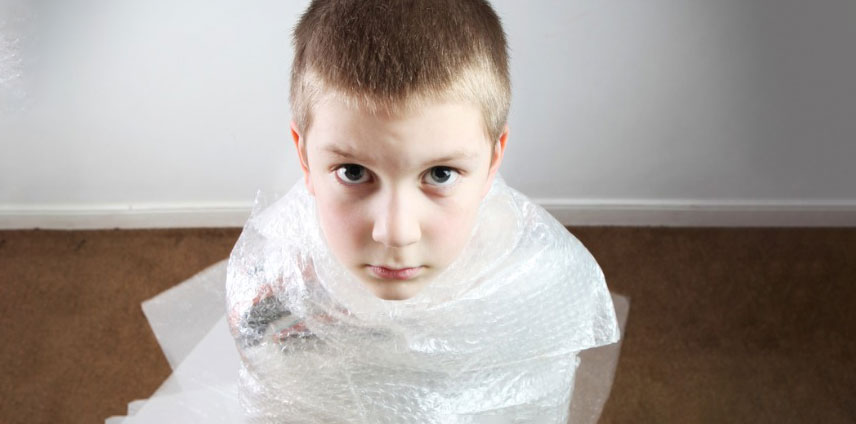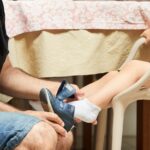There's nothing like working in emergency to make you risk-averse, but I may be doing my kids more harm than good.
As an emergency physician, I’ve seen it all.
I don’t mean the “exactly HOW did that get stuck there?” kind of seen it all (although I have certainly dealt with my fair share of that. A ring spanner? Really?).
Rather, I mean the:
- open brain injury from inadequate restraint in a motor vehicle accident
- skull fractures from falling off skateboards without wearing a helmet
- bicycle hand brake levers piercing the abdominal cavity
- degloving the oral mucosa of the mandible riding motor cross
- compound dislocated elbow fractures from falling off the monkey bars.
By the end of that list, you’ve probably understood that I’m talking about kids.
Witnessing the aftermath of risky activities in my professional life has made me somewhat risk-averse in my private life.
Hello, my name is Bethany and I’m a helicopter parent.
Of course, my point of view is incredibly skewed – not all kids who participate in risky activities end up in the emergency department. I don’t see the elated face of the kid who stuck the landing; I just see the worst of it.
I know risk aversion is not going to help my kids develop into confident humans with good judgment, so I need to temper my protective urges. Like any good clinician, I go searching for literature and evidence.
Kids need to be exposed to risk to help them develop and build responsibility, confidence in their decision making and social skills that will ultimately help them make good choices as adults.
In a world gone mad, there are reported instances where cartwheeling at school is banned, frilly socks are a trip hazard and a blind girl was told not to bring her walking cane to school for health and safety reasons – presumably so the sighted children did not trip over it. What?!
Where does the risk aversion start?
British researchers Pogrebna, Oswald and Haig demonstrated that from the moment the female gender is revealed on antenatal ultrasound, daughters induce parental risk aversion, in both mothers and fathers. This speaks to the early development of gender-based attitudes in modern society.
I was curious about which of my own characteristics contribute to my risk-averse nature and found an article called “Risky Play and Parenting Styles” in the Journal of Child and Family Studies. In their study of just under 900 Turkish parents, they found that two of the predictors of risk-averse behaviour included higher levels of education and being a mother rather than a father.
The authors postulated that well-educated working mothers may assuage their guilt surrounding spending less time with their children by displaying love to their children by overprotective parenting, leading to a lower tolerance for risky play activities.
I started feeling a little uncomfortable as I ticked off boxes in my head.
Griffin Longley, a journalist from the Australian state that banned cartwheeling in schools in 2017, presented an engaging TED talk on why we should “Let kids take risks”. He recounted the familiar but now defunct Australian parenting style that was the instruction “go outside and be home by dark”.
He noted that current children spend more time in front of screens than they do at school or with family and friends, and that they spend less than two hours outside each day. Longley asserts that 48% of parents think that there’s a high risk their child will be abducted if they go out alone in their neighbourhood. This is despite the fact most of us would acknowledge that the real likelihood is very low, demonstrating that risk is a perception.
What are the real risks associated with helicopter parenting? One is raising risk-illiterate children.
“Positive risks teach us how to be safe and allow us to explore our potential,” says Longley.
The risk takers of tomorrow will use their life experience and creativity to lead, innovate and question the status quo. They will do amazing things.
So, in order to grow useful humans, I’m going to do my bit to let my kids bust themselves up a bit. Santa brought my son a skateboard. He also bought a bag of protective equipment, at my behest. I said yes to some friends who wanted to buy my daughter rollerblades for her birthday.
I’m going to do both myself and the kids a favour and let them walk to school. But probably not until next year.
Dr Bethany Boulton is an emergency physician working on the Sunshine Coast. She is a founding member of WRaPEM (Wellness Resilience and Performance in Emergency Medicine), dedicated to bringing the non-technical skills of medicine to the fore.





